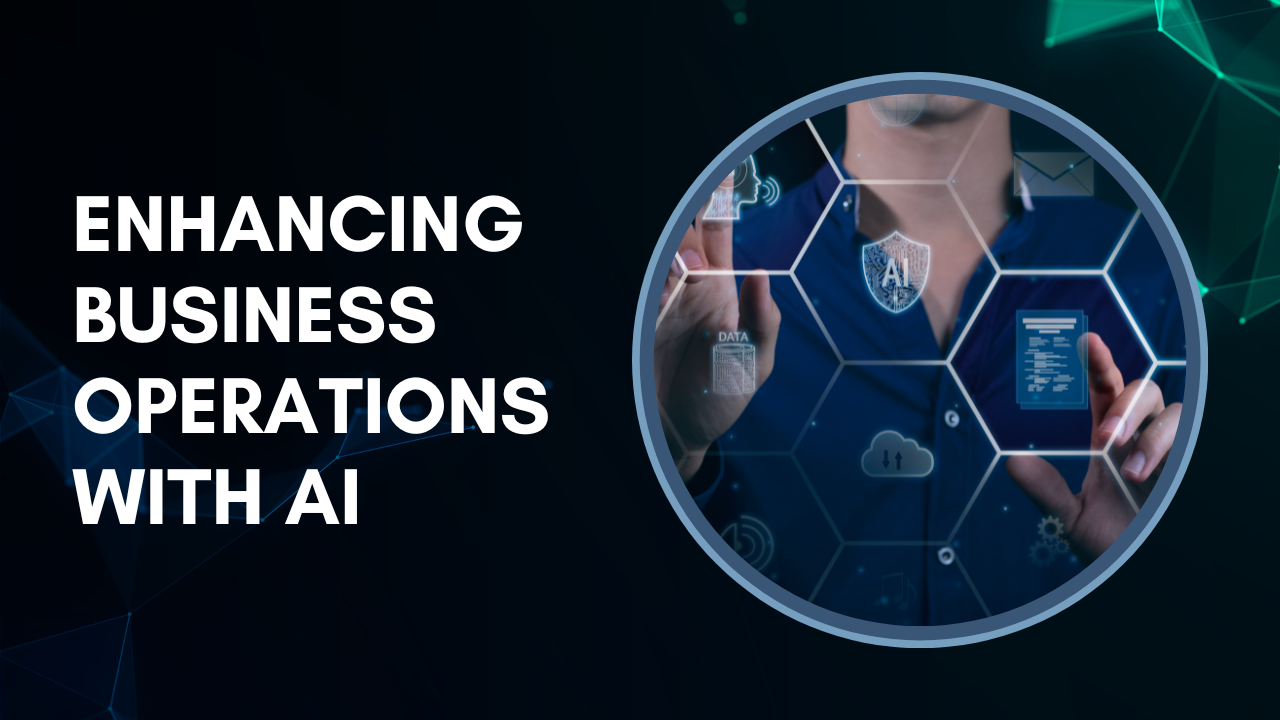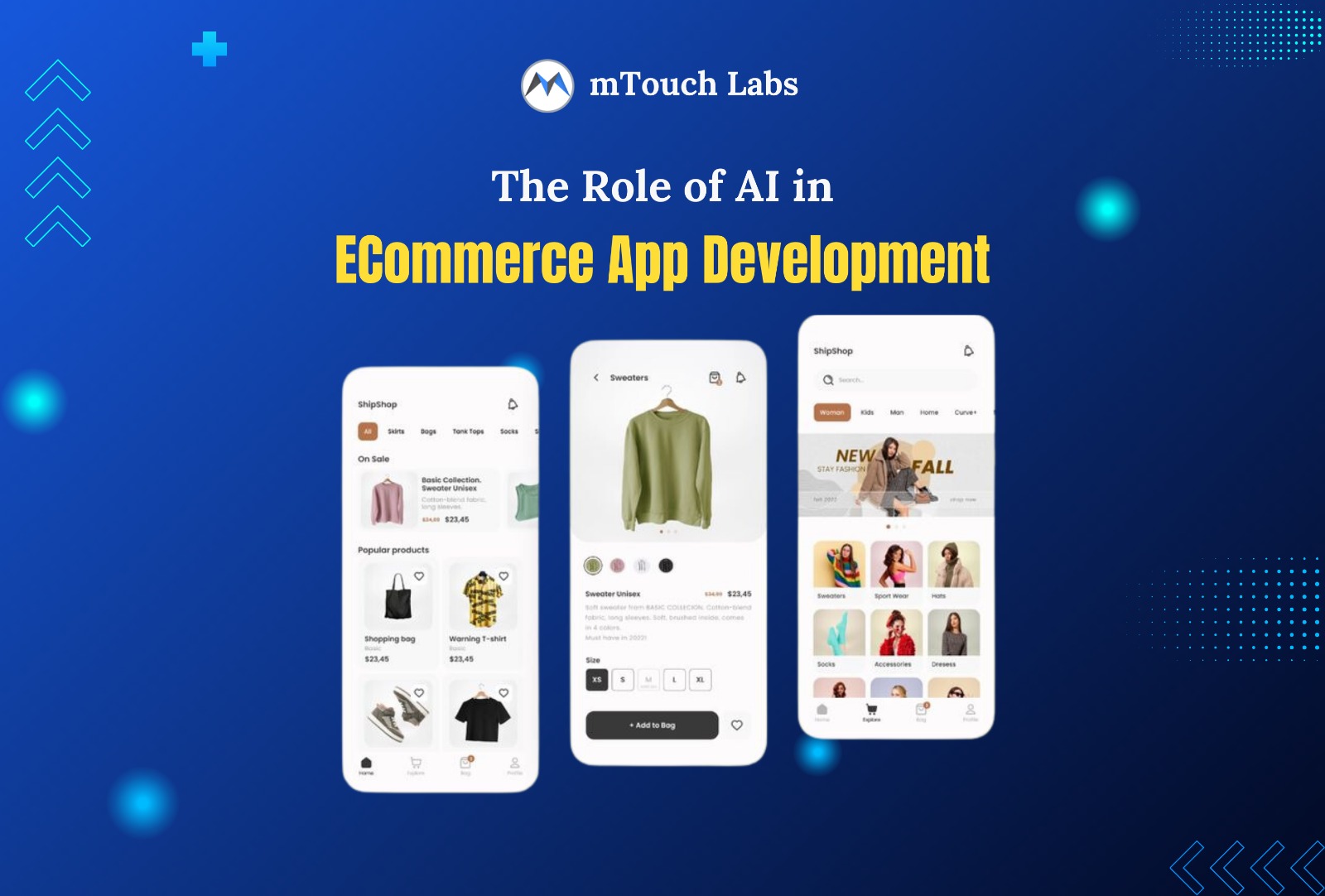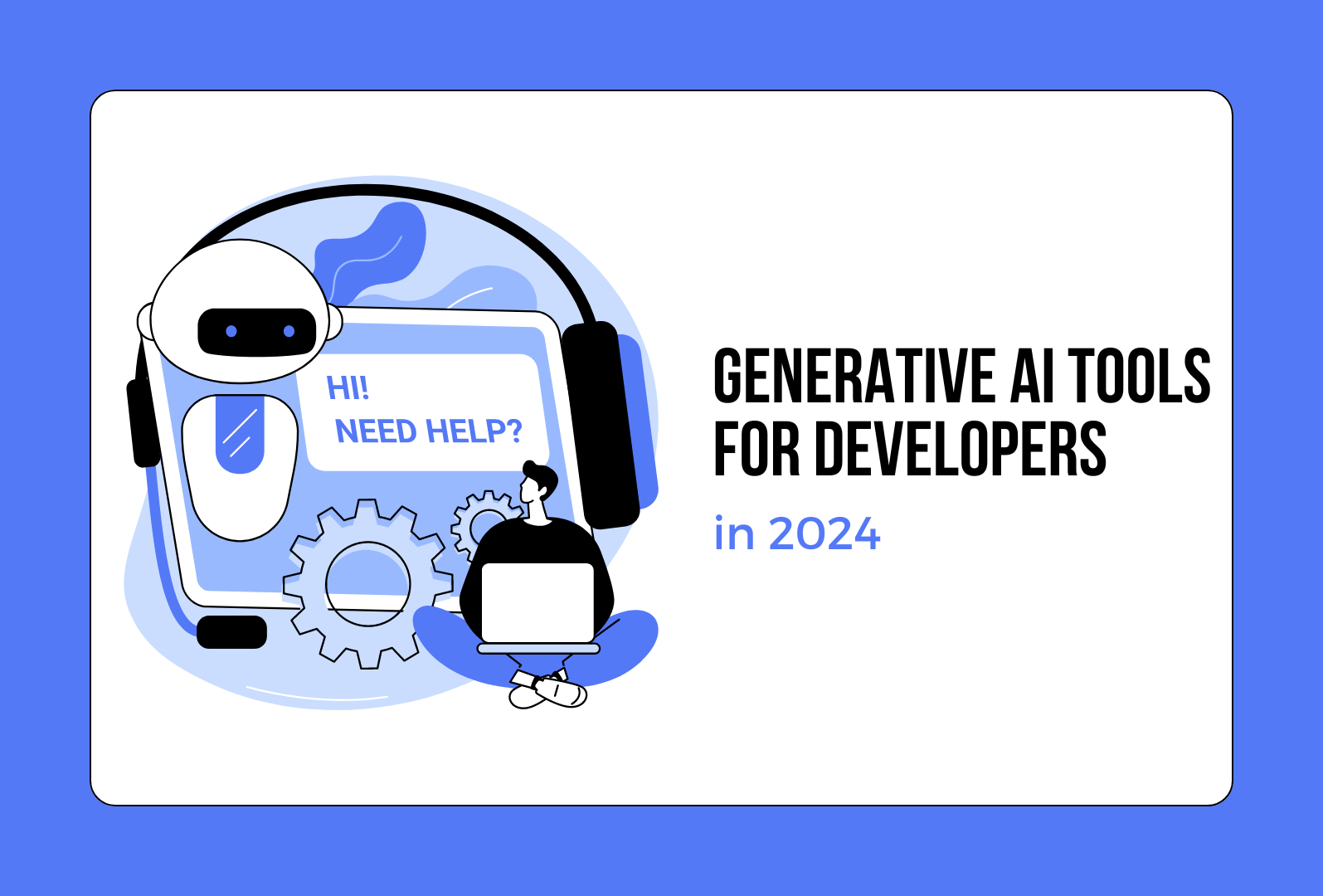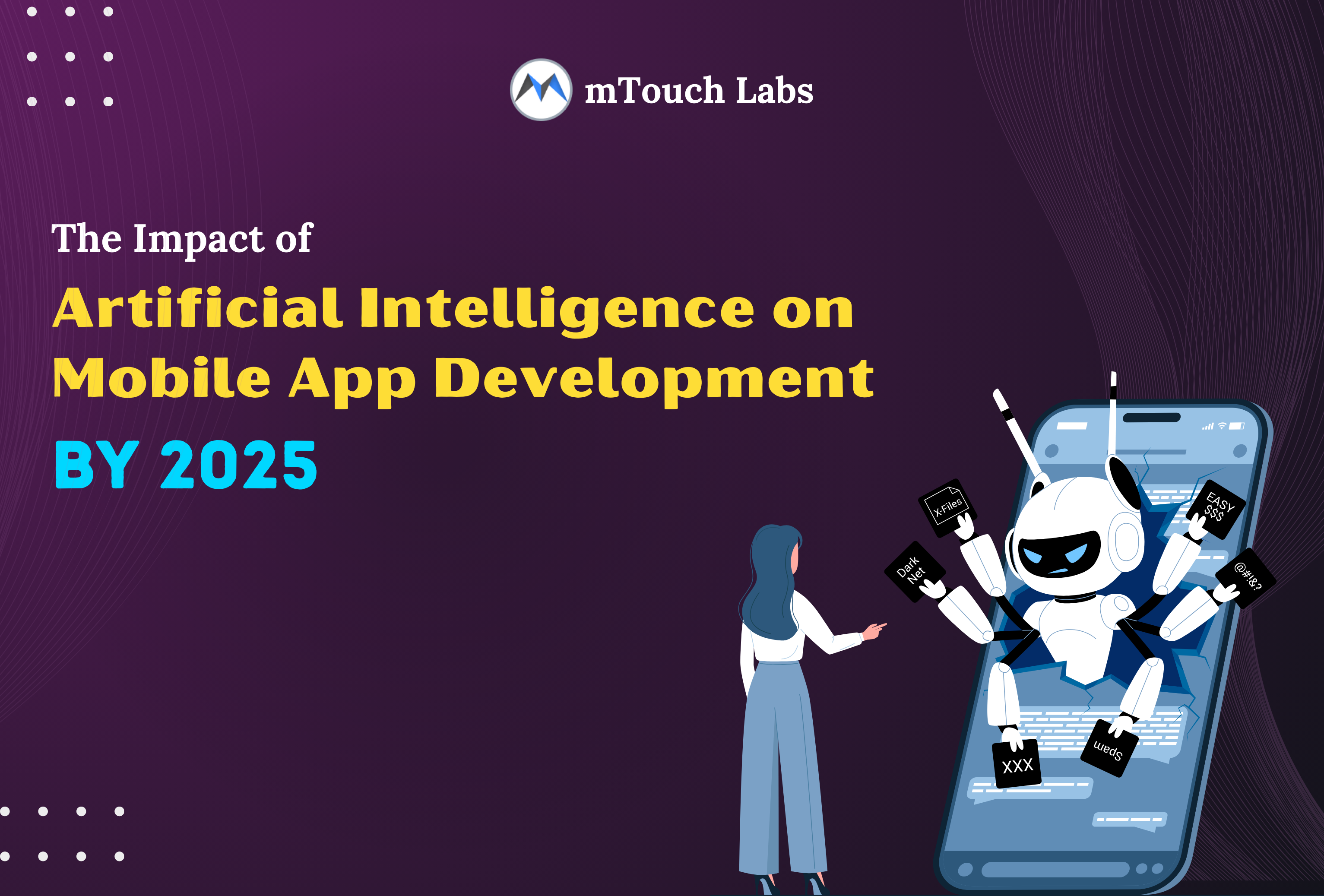The Role of AI in Enhancing Business Automation and Efficiency
Introduction
In today's fast changing digital landscape, organisations are continuously looking for methods to streamline operations, cut costs, and increase efficiency. Artificial intelligence (AI) has emerged as a disruptive force in business automation and operational efficiency, affecting sectors worldwide. By incorporating AI technologies into daily operations, businesses may optimise processes, make data-driven choices, and concentrate on strategic growth rather than tedious duties.
Understanding AI and Business Automation
Artificial intelligence (AI) refers to robots or software that can execute tasks that would normally need human intelligence, such as learning, reasoning, problem solving, and decision making. When applied to commercial operations, AI allows unprecedented levels of automation. AI-powered automation extends beyond simple rule-based procedures, bringing intelligence to repetitive workflows, learning from data, and making judgements with minimal human participation.
Key Areas Where AI is Enhancing Business Automation
1. Automating Repetitive Tasks
One of the most important applications of AI in business is its capacity to automate repetitive and time-consuming processes. From data entry to invoice processing, AI-powered systems like as Robotic Process Automation (RPA) can execute these operations swiftly and effectively, decreasing employee workload. This enables employees to focus on more strategic and creative elements of their jobs, increasing overall productivity.
Example: In finance departments, RPA is used to automate tasks like invoice approvals, account reconciliation, and payroll management. These automations save hours of manual work each week, leading to faster operations and reduced errors.
2. Improving Customer Service with AI Chatbots
AI-powered chatbots and virtual assistants have transformed customer service by responding instantly to customer enquiries. These AI systems can handle a high volume of client interactions with no downtime. They can answer frequently asked enquiries, execute simple requests, and even fix problems, all while learning and improving with time.
Example: Amazon and Shopify deploy AI chatbots to handle customer enquiries around the clock. These bots not only increase customer happiness, but also free up human workers to handle more difficult situations.
3. Optimizing Supply Chain and Inventory Management
Artificial intelligence is altering supply chain operations by enhancing demand forecasting, inventory management, and logistics. Machine learning algorithms use historical data, market patterns, and other factors to properly estimate demand. This guarantees that firms maintain ideal inventory levels while lowering storage expenses and preventing stockouts or overstocking.
Example: Retail giants like Walmart and Target leverage AI for dynamic demand forecasting and supply chain optimization. This allows them to align supply with demand in real time, leading to reduced wastage and better customer satisfaction.
4. Enhancing Data-Driven Decision Making
AI is great at analysing large volumes of data and deriving meaningful insights. Businesses can use AI-powered analytics and prediction models to make better real-time choices. This capacity is particularly useful for marketing, sales forecasting, and financial planning.
Example: In marketing, AI-driven tools analyze customer behavior, segment audiences, and recommend personalized campaigns that drive engagement and conversions. This level of precision in decision-making was difficult to achieve with traditional analytics alone.
5. Streamlining Human Resource Management
AI is playing an important role in automating HR activities like as recruitment, onboarding, and performance review. Artificial intelligence-powered tools can check resumes, organise interviews, and even conduct early assessments, saving HR staff a significant amount of time. Furthermore, AI systems may track employee performance, make personalised training recommendations, and boost employee engagement.
Example: Companies like Unilever use AI in their recruitment processes, employing algorithms to assess candidates' video interviews, analyze facial expressions, and evaluate psychometric data. This speeds up hiring and improves the selection process.
Benefits of AI-Powered Business Automation
- Productivity: By automating routine tasks, businesses can achieve higher productivity and allow employees to focus on higher-value activities.
- Cost Reduction: Automation reduces operational costs by minimizing manual labor, errors, and inefficiencies.
- Scalability: AI solutions can scale effortlessly to accommodate increased workloads, making them ideal for businesses experiencing growth.
- Improved Accuracy: AI-driven automation reduces the likelihood of human error, ensuring more accurate data processing and analysis.
- Enhanced Customer Experience: AI-powered systems provide personalized, efficient, and responsive customer interactions, improving satisfaction and loyalty.
Challenges and Considerations
While AI offers numerous benefits, implementing AI-powered automation is not without challenges. Businesses must consider data privacy, cybersecurity, and the potential disruption to the workforce. Additionally, integrating AI requires investment in technology and skills training to ensure that employees can work alongside AI systems effectively.
Conclusion
AI is radically transforming the way businesses function by incorporating intelligence into automation. From streamlining customer service and optimising supply chains to improving decision-making and human resource management, AI is boosting efficiency and allowing businesses to scale more quickly. As AI technology advances, firms that capitalise on these advancements will gain a competitive advantage, preparing themselves for long-term success in an increasingly automated environment. Embracing AI-driven automation is no longer an option; it's a must for businesses looking to flourish in the digital era.
Frequently Asked Questions
Find answers to common questions about AI in business automation.
AI-powered business automation refers to the use of artificial intelligence technologies to automate business processes. Unlike traditional rule-based automation, AI-powered automation extends beyond simple rule-based procedures, bringing intelligence to repetitive workflows, learning from data, and making judgements with minimal human participation. AI systems can execute tasks that would normally need human intelligence, such as learning, reasoning, problem solving, and decision making, allowing unprecedented levels of automation in commercial operations.
AI enhances business automation in several key areas: automating repetitive tasks through Robotic Process Automation (RPA), improving customer service with AI chatbots that handle high volumes of interactions, optimizing supply chain and inventory management through demand forecasting, enhancing data-driven decision making with AI-powered analytics, and streamlining human resource management by automating recruitment, onboarding, and performance reviews. These applications help businesses optimize processes, reduce costs, and increase efficiency.
The main benefits of AI-powered business automation include increased productivity by allowing employees to focus on higher-value activities, cost reduction through minimized manual labor and errors, scalability to accommodate increased workloads effortlessly, improved accuracy in data processing and analysis, and enhanced customer experience through personalized, efficient, and responsive interactions. These benefits help businesses streamline operations, make data-driven decisions, and concentrate on strategic growth.
Ready to Transform Your Business with AI Automation?
Let's discuss how mTouch Labs can help you implement AI-powered automation solutions to streamline operations and boost efficiency.
Get Started


